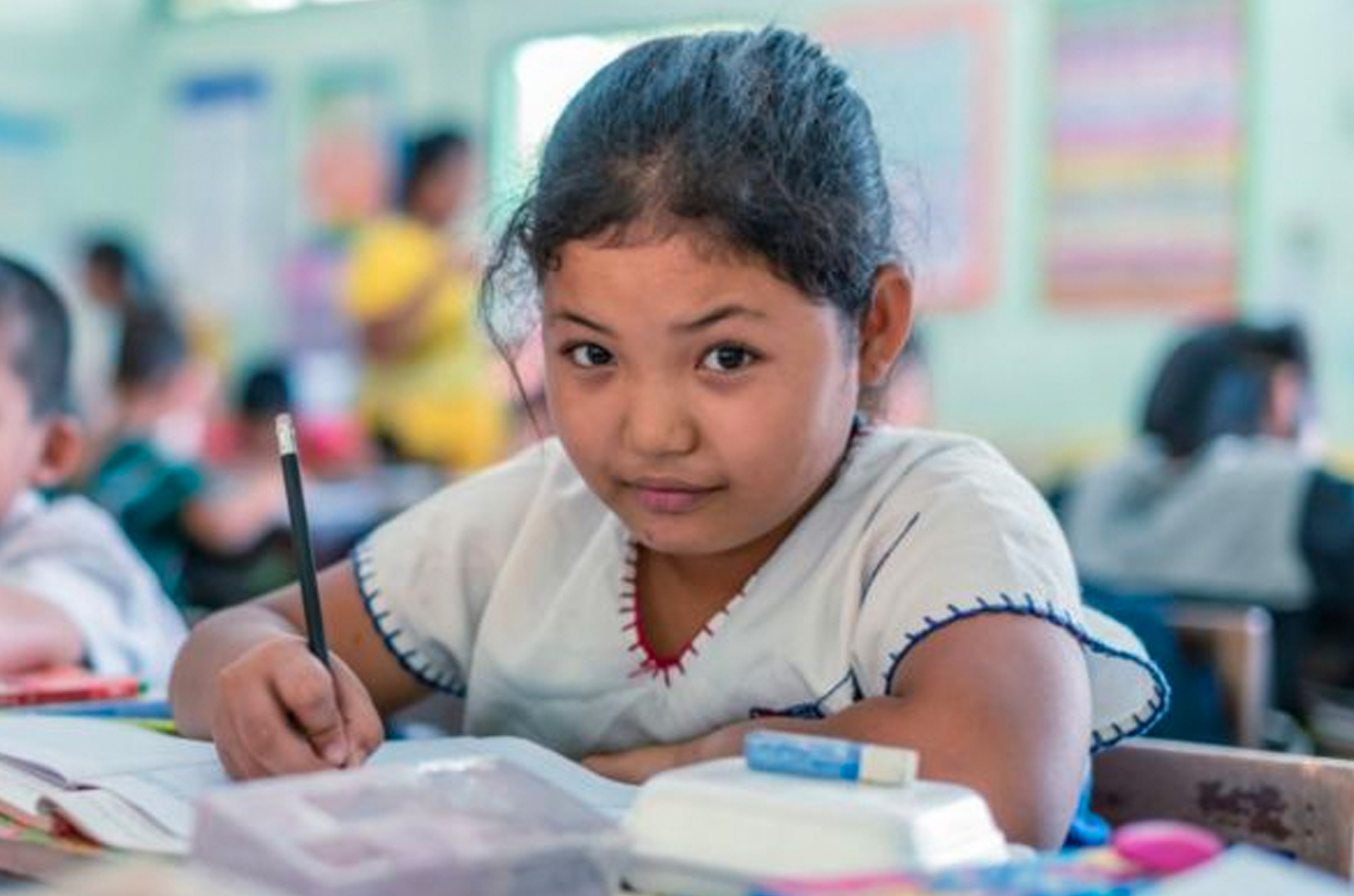
On International Mother Language Day 2023, it is time to reflect on how multilingual education is key to the recovery and transformation of education systems for all learners.
The 2023 theme for International Mother Language Day, ‘multilingual education - a necessity to transform education’, is especially timely. In September 2022, the United Nations Transforming Education Summit (TES) convened heads of state and government representatives to discuss how to fundamentally and comprehensively transform education systems in order to achieve Sustainable Development Goal 4 (SDG4), or the ‘education SDG’, which sets out to ‘ensure inclusive and equitable quality education and promote lifelong learning opportunities for all’ by 2030. The TES concluded with global initiatives and calls to action to ensure that the SDGs are met. The calls to action include supporting education in crisis situations, addressing the learning crisis, greening education partnerships, improving quality public digital learning, advancing gender equality, and financing education.
In his Vision Statement for transforming education, UN Secretary-General António Guterres recognises that children and youth continue to face discrimination based on various grounds, including the neglect of their mother language. When determining innovative approaches in answer to these important calls, educators must integrate multilingual education as a central component of their strategic solutions, lest they continue to marginalize already vulnerable and disadvantaged learners.
.jpg)
Notably, while multilingual education considerably helps to address systemic inequities, it also improves the quality of education for all learners. The State of Global Learning Poverty: 2022 Update has reported that COVID-19 school closures and related education disruptions significantly increased ‘learning poverty’ from already concerning pre-pandemic figures. This indicator revealed that 70 per cent of children in low- and middle-income countries are unable to read and understand a simple text by the age of ten. At the same time, between 37 and 40 per cent of the global population lacks access to education in a language they speak or understand.
Research across a significant range of multilingual contexts, such as Cambodia, Cameroon, Peru and Thailand, has shown that learners in mother tongue-based multilingual education (MTB MLE) have as good, or even better learning outcomes than their non-MLE peers across various academic subjects, including reading and mathematics. As such, MTB MLE can help build foundational skills, reduce learning poverty and combat the global learning crisis.
.jpg)
Fortunately for education practitioners, planners, and policy-makers, multilingual education is also cost-effective compared to other potential innovations. A 2016 report by the International Commission on Financing Global Education Opportunity determined mother-tongue/bilingual instruction to be one of the most highly effective practices to increase learning outcomes at some of the lowest financial costs to education systems. The report also found the mother-tongue/bilingual instruction intervention to have the highest impact on teaching quality and learning effects – more than improving teaching methods, providing remedial education or computer-assisted learning, or doubling learning time, among other interventions. To cite but one example, while digital learning can help to expand opportunities for learners, such a tool must be in languages learners know and understand. And in the long term, multilingual education systems spend less money on learners who might otherwise need to repeat a grade or drop out of school entirely, while all learners turn out to be better equipped with the skills they truly need to contribute to the economy, their communities, and greater society.
Multilingual education cuts across innovations aiming to build resilient futures amidst the increased uncertainties of the twenty-first century. These resilience- and sustainability-oriented initiatives must consider the role of language, especially mother tongues and indigenous languages, if they are to be truly inclusive, and ultimately truly effective. For example, indigenous languages can help to safeguard traditional cultural knowledges and practices related to biodiversity. Such languages, cultures and knowledges can enrich greening education by providing traditional solutions to mitigate the effects of climate change and environmental degradation. In regard to refugee and crisis contexts, these learners may face additional barriers to education if they cannot speak the language of their new host community, or are unable to receive and make good use of emergency materials in languages they understand.
.jpg)
If multilingual education can clearly contribute to transforming education systems, it is not the only intervention currently needed to provide a truly equitable and inclusive quality education for all learners. Vulnerable learners including those from ethnolinguistic minority backgrounds often face multiple and compounded disadvantages to enrolling and staying in school, such as remoteness, poverty, and teacher attrition, as well as language barriers. Language is a key factor in transforming all societal systems, not only education, for achieving full equity and inclusion for all.
The Asia-Pacific region will continue the momentum of this year’s International Mother Language Day theme well into late year. In October, the Asia-Pacific Multilingual Education Working Group, co-chaired by UNESCO Asia and Pacific Regional Bureau for Education, and UNICEF East Asia and Pacific Regional Office (UNICEF EAPRO), will be hosting the 7th International Conference on Language and Education. The conference will aim to bring together education practitioners, planners and policy-makers to present and discuss multilingual education for transformative education systems and resilient futures. In parallel with this event, the 4th High-Level Policy Forum on MLE will expand on the Bangkok Statement on Language and Inclusion, which provides action items for realizing SDG4 in relation to the language needs of all learners.
The article originally appeared on the UNESCO Bangkok website, 20 February 2023, at https://bangkok.unesco.org/content/multilingual-education-essential-strategy-transforming-education-systems.
-----
|
|
Brandon Ray Darr supports initiatives at UNESCO Bangkok in the Section for Inclusive Quality Education (IQE) in the areas of Early Childhood Care and Education (ECCE) and Equity and Inclusion in Education, particularly for activities under the Asia-Pacific Multilingual Education Working Group. He holds a Master’s degree in International Educational Development from the University of Pennsylvania, and a Bachelor’s in Educational Linguistics from the University of Tennessee-Knoxville.
|



